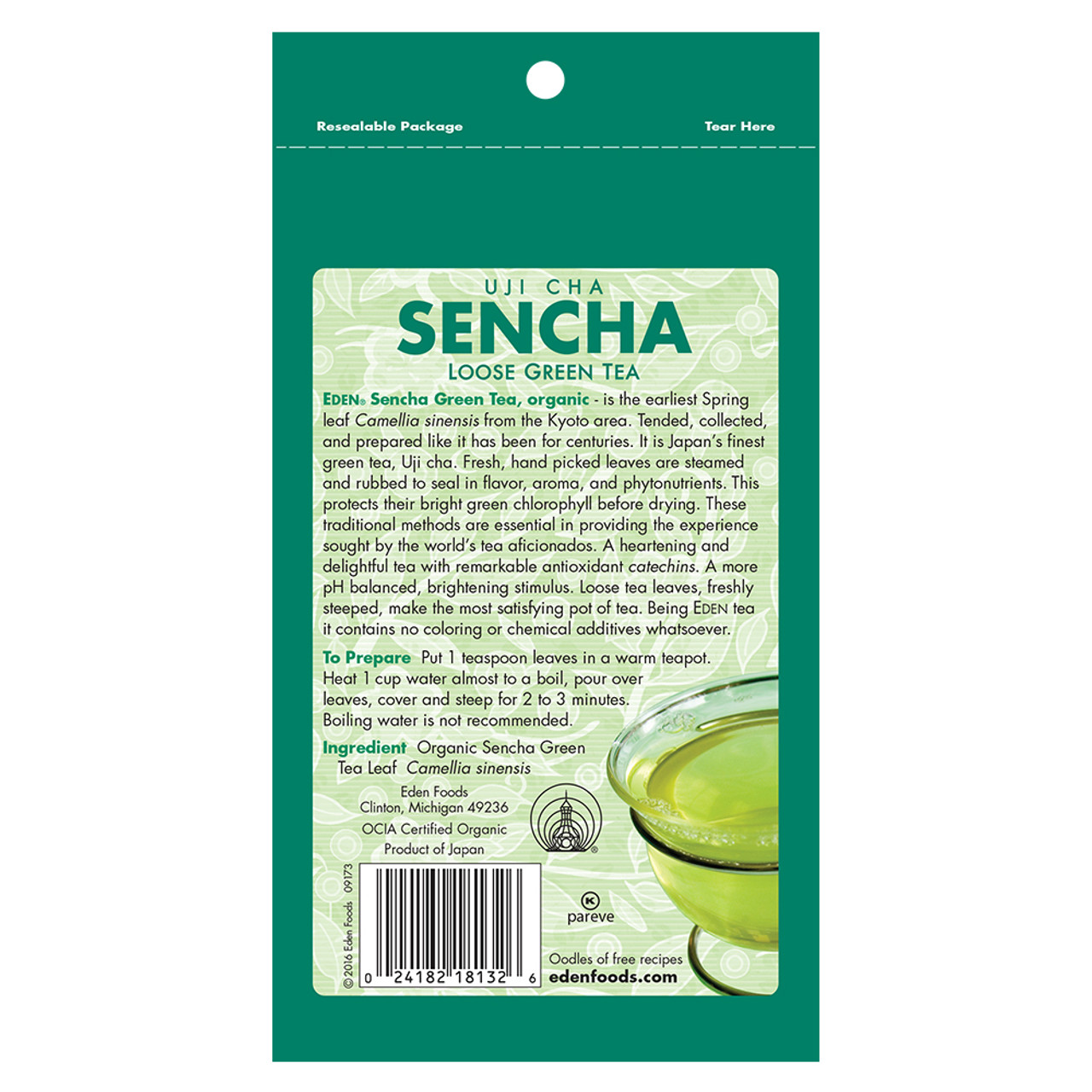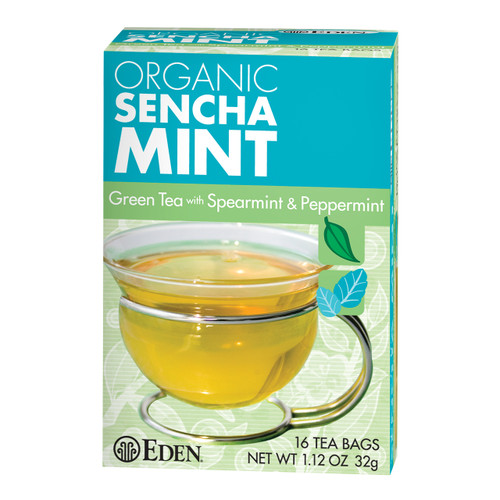Eden Green Tea — hand-picked, tender, prized leaves of spring are immediately steamed and rubbed to prevent oxidation and capture its vital green antioxidant benefits. Forty-six years of organic methods have created living soil, happy plants, and deliciously authentic sencha green tea. Catalyze life, relations, and mental acuity. Soothe, Refresh, and Uplift. Reclosable standing pouch. Antioxidant catechin benefits comprise 40% of green tea’s dry weight. ![]()
MORE DETAILS
Organic Eden Sencha Green Tea is only the tender leaves of spring. Handpicked, they are immediately steamed and rubbed to prevent oxidation from occurring. Soothing and uplifting sencha has the flavor of fresh tea leaves more than any other tea. Steaming and rubbing the leaves preserves beneficial antioxidants and the emerald green chlorophyll. That is what makes green tea special, but only if it is authentic, organically grown and handled as has the Nagata Co-op of Uji since 1974. Their skilled, artisan methods are essential in providing the experience green tea drinkers seek. When steeped, first the acidic components are released by the leaves, followed by the alkaloid elements. The two-step release is why green tea must be steeped for a few minutes. After a time, to maintain best taste, it is best to remove the tea bag from the cup before you finish enjoying it.
Eden Sencha is organically grown on a remote, centuries old tea plantation near Uji, Japan, the Nagata Co-op. In early spring, the bushes are shaded with netting or traditional bamboo screens to protect new leaves from harsh sun. Most commonly, the first spring leaves are made into gyokuro jewel tea, Japan's rarest tea and also the one used to make ceremonial grade, powdered green tea matcha. At the Nagata Co-op these first, most prized leaves are used to make Eden Sencha green tea, also the foundation of Eden Sencha Blends.
The Nagata Co-op replenishes the soil only with vegetable quality compost. They do not use manure, chemical fertilizers, herbicides, or pesticides. While commercial tea is sprayed with chemicals 15 to 20 times per year, the Nagatas completely rejected chemical agriculture in 1974. Chemically grown plants burn out in about twenty years, but the Nagata bushes produce for 40 years or more, some for as long as 100 years.
Uji is the name of the area around the ancient Japan capitals of Nara and Kyoto. Tea bushes brought form China were first grown there. It is famous for producing Japan’s best quality green tea, respectfully referred to as Uji-cha. Uji's rich, slightly acidic soil is ideal for tea bushes, and morning mist from the Uji river moistens the tea leaves and shields them from the sun.
Honored for over 4,000 years as a medicinal herb in China, the tea bush was introduced to Japan over 800 years ago, where tea became the national beverage. All true teas stem from the plant Camellia sinensis, a medium-height, evergreen shrub with gentle looking rounded leaves. Tea becomes green, black, or other varieties in how leaves are cured and handled. The time of year harvested, is also significant. Tea leaves begin oxidizing as soon as they are picked. Chinese and English teas allow, even encourage, oxidation to proceed as it dries. With Japanese green tea, oxidation is immediately halted using a steam and rubbing process.
Green tea’s flavor reflects the soil it is from, the season picked, and the curing process. Eden Sencha is tended and handled following strict organic practices. The Nagata’s dedication to organic farming is found in the skillful, traditional handling methods that protect the tea's flavor and antioxidant nutrients. They produce exceedingly fine organic green tea.
Green tea has been focused on in medical research in many countries. The studies affirm green tea's healthful properties. Antioxidants, including epigallocatechins gallate, tannins, and flavonoids, all collectively referred to as 'catechins,' are cited. These polyphenols account for 40% of the tea's dry weight.















